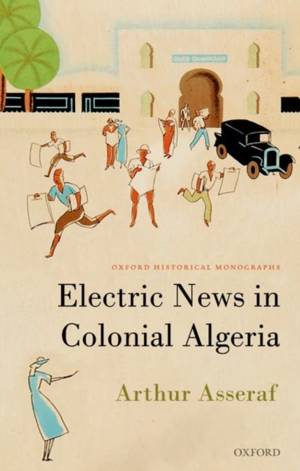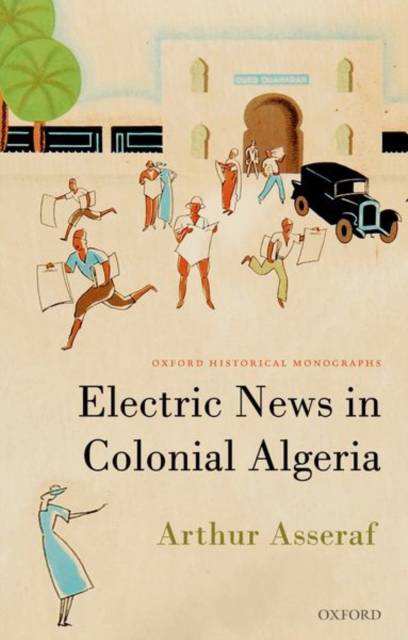
- Retrait gratuit dans votre magasin Club
- 7.000.000 titres dans notre catalogue
- Payer en toute sécurité
- Toujours un magasin près de chez vous
- Retrait gratuit dans votre magasin Club
- 7.000.000 titres dans notre catalogue
- Payer en toute sécurité
- Toujours un magasin près de chez vous
45,45 €
+ 90 points
Description
How do the things which connect us also serve to divide us? Electric News in Colonial Algeria traces how news circulated in a particularly divided society: Algeria under French rule in the late nineteenth and early twentieth centuries. It tells a different history of globalization, one which puts the experience of everyday people at the centre. The years between 1881 and 1940 were those of maximum colonial power in North Africa; a period of intense technological revolution, global high imperialism, and the expansion of settler colonialism. Algerians became connected to international networks of news, and local people followed distant events with great interest. But once news reached Algeria, accounts of recent events often provoked conflict as they moved between different social groups. In a society split between its native majority and a substantial settler minority, distant wars led to riots. Circulation and polarisation were two sides of the same coin. Examining a range of sources in multiple languages across colonial society, Electric News in Colonial Algeria offers a new understanding of the spread of news. News was a whole ecosystem in which new technologies such as the printing press, telegraph, cinema, and radio interacted with older media like songs, rumours, letters, and manuscripts. The French government watched anxiously over these developments, monitoring Algerians' reactions to news through an extensive network of surveillance that often ended up spreading news rather than controlling its flow. By tracking what different people thought of as news, this history helps us reconsider the relationship between time, media, and historical change.
Spécifications
Parties prenantes
- Auteur(s) :
- Editeur:
Contenu
- Nombre de pages :
- 256
- Langue:
- Anglais
- Collection :
Caractéristiques
- EAN:
- 9780192864017
- Date de parution :
- 01-07-22
- Format:
- Livre broché
- Format numérique:
- Trade paperback (VS)
- Dimensions :
- 138 mm x 215 mm
- Poids :
- 331 g







